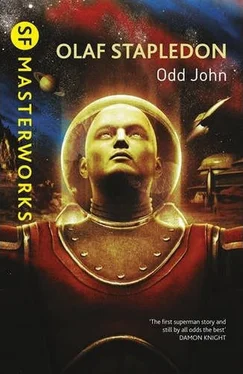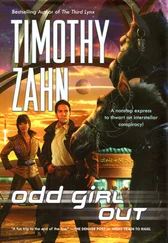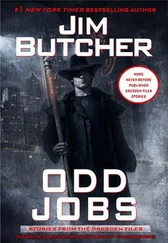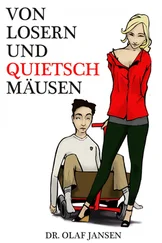Olaf Stapledon - Odd John
Здесь есть возможность читать онлайн «Olaf Stapledon - Odd John» весь текст электронной книги совершенно бесплатно (целиком полную версию без сокращений). В некоторых случаях можно слушать аудио, скачать через торрент в формате fb2 и присутствует краткое содержание. Город: London, Год выпуска: 2012, ISBN: 2012, Издательство: Hachette UK, Жанр: Фантастика и фэнтези, на английском языке. Описание произведения, (предисловие) а так же отзывы посетителей доступны на портале библиотеки ЛибКат.
- Название:Odd John
- Автор:
- Издательство:Hachette UK
- Жанр:
- Год:2012
- Город:London
- ISBN:9780450038570
- Рейтинг книги:5 / 5. Голосов: 1
-
Избранное:Добавить в избранное
- Отзывы:
-
Ваша оценка:
- 100
- 1
- 2
- 3
- 4
- 5
Odd John: краткое содержание, описание и аннотация
Предлагаем к чтению аннотацию, описание, краткое содержание или предисловие (зависит от того, что написал сам автор книги «Odd John»). Если вы не нашли необходимую информацию о книге — напишите в комментариях, мы постараемся отыскать её.
Odd John — читать онлайн бесплатно полную книгу (весь текст) целиком
Ниже представлен текст книги, разбитый по страницам. Система сохранения места последней прочитанной страницы, позволяет с удобством читать онлайн бесплатно книгу «Odd John», без необходимости каждый раз заново искать на чём Вы остановились. Поставьте закладку, и сможете в любой момент перейти на страницу, на которой закончили чтение.
Интервал:
Закладка:
A few weeks after the murder, John developed a surprising interest in a very homely sphere, namely the management of a house. He would spend an hour at a time in following Martha the maid about the house on her morning’s work, or in watching the culinary operations. For her entertainment he kept up a stream of small talk compounded of scandal, broad humour, and chaff about her “gentlemen friends.” The same minute observation, but a very different kind of talk was devoted to Pax when she was in the pantry or the larder, or when she was “tidying” a room or mending clothes. Sometimes he would break off his tittle-tattle to say, “Why not do it this way?” Martha’s response to such suggestions varied from haughty contempt to grudging acceptance, according to her mood. Pax invariably gave serious attention to the new idea, though sometimes she would begin by protesting, “But my way works well enough; why bother?” In the end, however, she nearly always adopted John’s improvement, with an odd little smile which might equally well have meant maternal pride or indulgence.
Little by little John introduced a number of small labour-saving devices into the house, shifting a hook or a shelf to suit the natural reach of the adult arm, altering the balance of the coal-scuttle, reorganizing the larder and the bathroom. He tried to introduce his methods into the surgery, suggesting new ways of cleaning test-tubes, sterilizing instruments and storing drugs; but after a few attempts he gave up this line of activity, since, as he put it, “Doc likes to muddle along in his own way.”
After two or three weeks John’s interest in household economy seemed to fade, save for occasional revivals in relation to some particular problem. He now spent most of his time away from home, ostensibly reading on the shore. But as the autumn advanced, and we began to inquire how he managed to keep himself warm, he apparently developed a passion for long walks by himself. He also spent much time in excursions into the neighbouring city. “I’m going to town for the day to see some fellows I’m interested in,” he would tell us; and in the evening he would return tired and absorbed.
It was toward the end of the winter that John, now about ten and a half, took me into his confidence with regard to the amazing commercial operations which had been occupying him during the previous six months. One filthy Sunday morning, when the windows were plastered with sleet, he suggested a walk. I indignantly refused. “Come on,” he insisted. “It’s going to be amusing for you. I want to show you my workshop.” He slowly winked first one huge eye and then the other.
By the time we had reached the shore my inadequate mackintosh was letting water through on my shoulders, and I was cursing John, and myself too. We tramped along the soaked sands till we reached a spot where the steep clay cliffs gave place to a slope, scarcely less steep, but covered with thorn bushes. John went down on his knees and led the way, crawling on all-fours up a track between the bushes. I was expected to follow. I found it almost impossible to force my larger bulk where John had passed with ease. When I had gone a few yards I was jammed, thorns impaling me on every side. Laughing at my predicament and my curses, John turned and cut me adrift with his knife, the same, doubtless, as had killed the constable. After another ten yards the track brought us into a small clearing on the steep slope. Standing erect at last, I grumbled, “Is this what you call your workshop?” John laughed, and said, “Lift that.” He was pointing to a rusty sheet of corrugated iron, which lay derelict on the hillside. One end of it was buried under a mass of rubbish. The exposed part was about three feet square. I tugged its free end up a couple of inches, cut my fingers on the rusty jagged edge, and let go with a curse. “Can’t be bothered,” I said. “Do your own dirty work, if you can.”
“Of course you can’t be bothered,” he replied, “nor would anyone else who found it.” He then worked his hand under the free corners of the sheet, and disentangled some rusty wire. The sheet was now easily lifted, and opened like a trap door in the hillside. It revealed a black hole between three big stones. John crawled inside, and bade me follow; but before I could wedge my way through he had to move one of the stones. I found myself in a low cave, illuminated by John’s flash-light. So this was the workshop! It had evidently been cut out of the clay slope and lined with cement. The ceiling was covered with rough planks, and shored up here and there with wooden posts.
John now lit an acetylene lamp, which was let into the outer wall. Shutting its glass face, he remarked, “Its air comes in by a pipe from outside, and its fumes go out by another. There’s an independent ventilation system for the room.” Pointing to a dozen round holes in the wall, “Drainpipes,” he said. Such pipes were a common sight on the coast, for they were used for draining the fields; and the ever-crumbling cliff often exposed them.
For a few minutes I crouched in silence, surveying the little den. John watched me, with a grin of boyish satisfaction. There was a bench, a small lathe, a blow-lamp, and quantities of tools. On the back wall was a tier of shelves covered with a jumble of articles. John took one of these and handed it to me, saying, “This is one of my earlier gadgets, the world’s perfect wool-winder. No curates need henceforth apply. The Church’s undoing! Put the skein on those prongs, and an end of wool in that slot, then waggle the lever, so, and you get a ball of wool as sleek as the curate’s head. All made of aluminum sheeting, and a few aluminum knitting needles.”
“Damned ingenious,” I said, “but what good is it to you?”
“Why, you fool! I’m going to patent it and sell the patent.”
Producing a deep leather pouch, he said, “This is a detachable and untearable trouser-pocket for boys; and men, if they’ll have the sense to use it. The pocket itself clips on to this L-shaped strip, so; and all your trousers have strips like this, firmly sewn into the lining. You have one pair of pockets for all your trousers, so there’s no bother about emptying pockets when you change your clothes. And no more holes for Mummy to mend. And no more losing your treasures. Your pocket clips tight shut, so.”
Even my interest in John’s amazing enterprise (so childish and so brilliant, I told myself) could not prevent me from feeling wet and chilled. Taking of my dripping mackintosh, I said, “Don’t you get horribly cold working in this hole in the winter?”
“I heat the place with this,” he said, turning to a little oil-stove with a flue leading round the room and through the wall. He proceeded to light it, and put a kettle on the top, saying, “Let’s have some coffee.”
He then gave me a “gadget for sweeping out corners.” On the end of a long tubular handle was a brush like a big blunt cork-screw. This could be made to rotate by merely pressing it into the awkward corner. The rotatory motion was obtained by a device reminiscent of a “propelling” pencil, for the actual shaft of the brush was keyed into a spiral groove within the hollow handle.
“It’s possible the thing I’m on now will bring more money than any thing else, but it’s damned hard to make even an inch or two of it by hand.” The article which John now showed me was destined to become one of the most popular and serviceable of modern devices connected with clothing. Throughout Europe and America it has spawned its myriads of offspring. Nearly all the most ingenious and lucrative of John’s inventions have had such outstanding success that almost every reader must be familiar with every one of them. I could mention a score of them; but for private reasons, connected with John’s family, I must refrain from doing so. I will only say that, save for one universally adopted improvement in roadtraffic appliances, he worked entirely in the field of household and personal labour-saving devices. The outstanding fact about John’s career as an inventor was his knack of producing not merely occasional successes but a steady flow of “best sellers.” Consequently to describe only a few minor achievements and interesting failures must give a very false impression of his genius. The reader must supplement this meagre report by means of his own imagination. Let him, in the act of using any of the more cunning and efficient little instruments of modern comfort, remind himself that this may well be one of the many “gadgets” which were conceived by the urchin-superman in his subterranean lair.
Читать дальшеИнтервал:
Закладка:
Похожие книги на «Odd John»
Представляем Вашему вниманию похожие книги на «Odd John» списком для выбора. Мы отобрали схожую по названию и смыслу литературу в надежде предоставить читателям больше вариантов отыскать новые, интересные, ещё непрочитанные произведения.
Обсуждение, отзывы о книге «Odd John» и просто собственные мнения читателей. Оставьте ваши комментарии, напишите, что Вы думаете о произведении, его смысле или главных героях. Укажите что конкретно понравилось, а что нет, и почему Вы так считаете.












